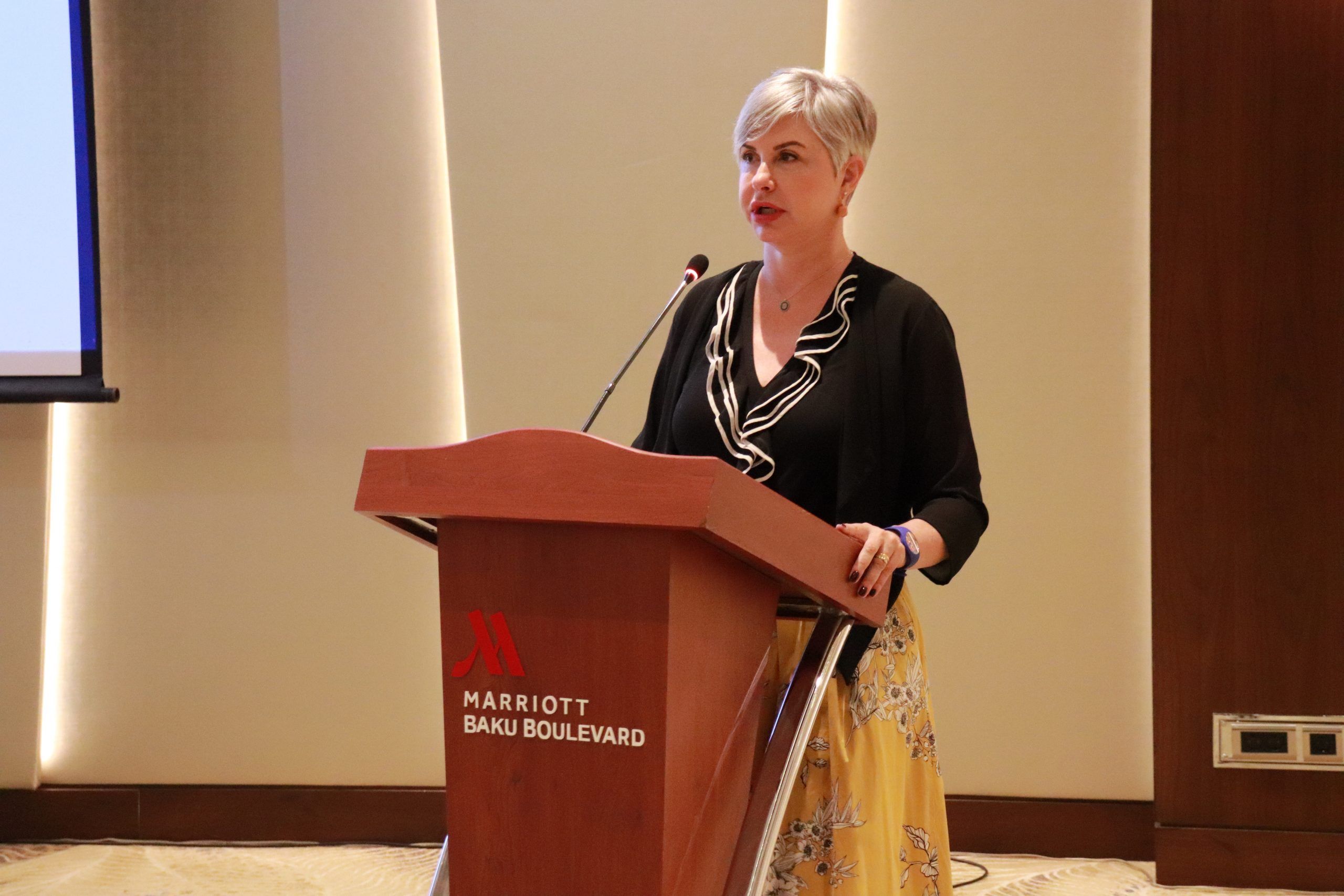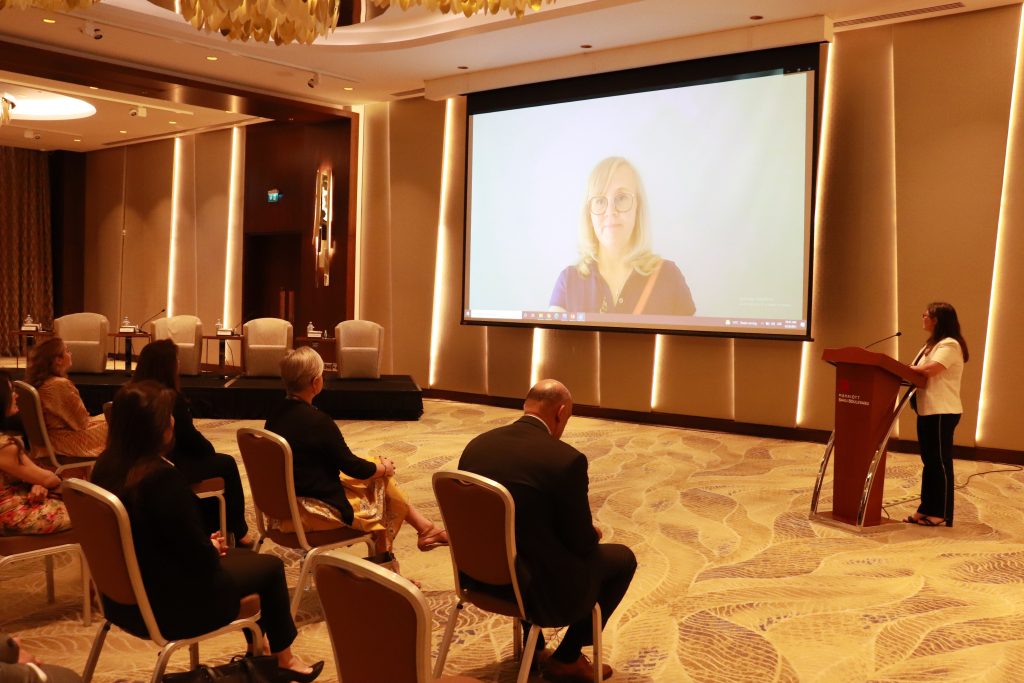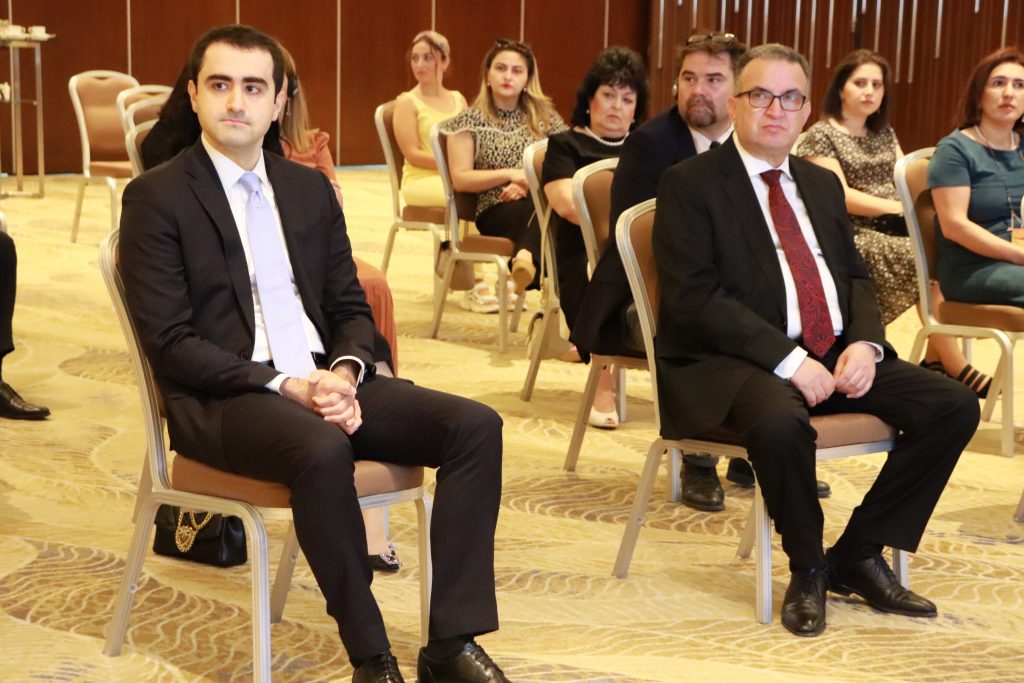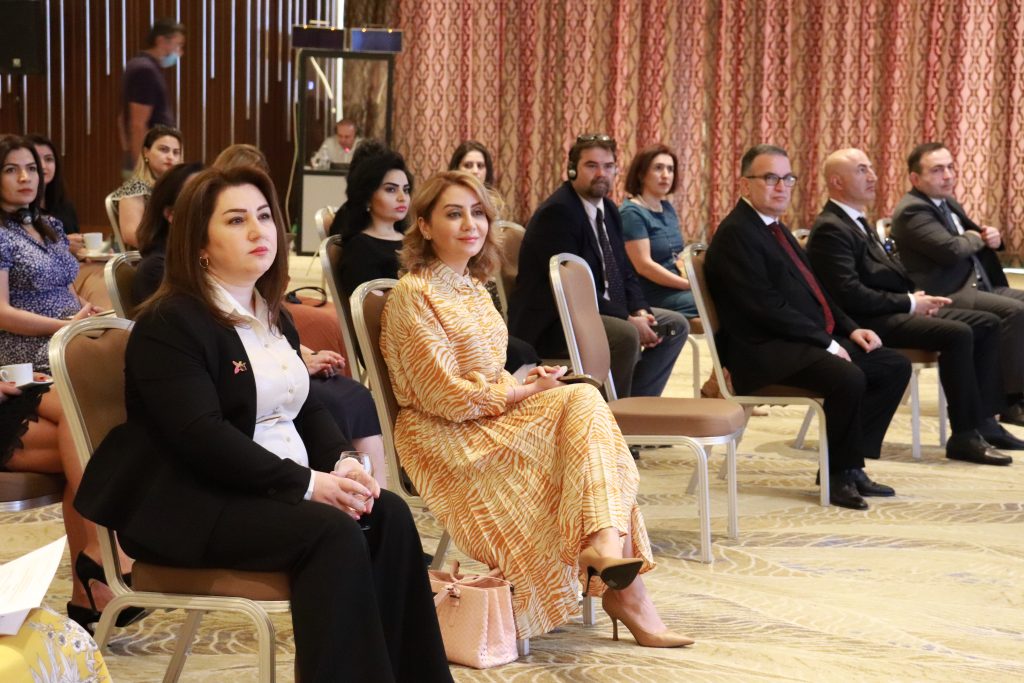
“Entrepreneurship for Youth” project closing ceremony
On June 23, Junior Achievement Azerbaijan held the closing ceremony of the “Entrepreneurship for Youth” funded by the European Union and co-funded by PASHA Bank.
The closing ceremony was organized to inform participants about the successful results of the project. Project partners, representatives from government agencies, CSOs, embassies, and the business sector participated at the closing ceremony. The special guests of the meeting were Mr. Hasan Hasanli, chief of staff of the Ministry of Education, Mrs. Simona Gatt, Minister Counsellor of the EU Delegation in the Republic of Azerbaijan, and Mrs. Khayala Nagiyeva, a member of the board of PASHA Bank.
In his speech, Mr. Hasanli underlined the need of introducing financial literacy and entrepreneurial education at secondary schools. Therefore, he outlined the importance of the “Entrepreneurship of Youth” project for the Ministry of Education.
Mrs. Simona Gatt, Minister Counsellor of the EU Delegation in the Republic of Azerbaijan said: “The EU continues to support Azerbaijan in the development of human resources, digital technology, and the economy. We worked very closely with teachers in this project because teacher training was an important part of the project”.
In her remarks, Khayala Nagiyeva, a member of the Board of PASHA Bank, said that more than 4,000 young people are at least 4,000 successful and financially literate people in the future. We will continue to invest in projects in this direction. Because entrepreneurship is the basis of the economy and education plays a key role in people.
Mrs. Sevinj Mammadova, executive director of JA Azerbaijan, made a presentation on the successful results of the project.
Entrepreneurship for Youth, the EU-funded project, is implemented by Junior Achievement Azerbaijan in partnership with Junior Achievement Estonia and Azerbaijan Microfinance Association.
The overall objective of the action was to promote financial literacy and entrepreneurship education at the pilot schools through the involvement of civil society organizations and the private sector. By applying the experience of the Estonian partner, the project has the three main targets: develop teaching-learning materials based, involve teachers in capacity building training, and introduce financial literacy and entrepreneurship at the pilot schools. Throughout its implementation period, the project has engaged 170 teachers and 4909 students from Baku, Ganja, Gabala, Gakh, Zagatala, Masally, Mingachevir, and Khachmaz.
The action not only contributed to the improvement of financial literacy among students but also among teachers. The assessment of the financial health among teachers showed that after two years of the project implementation 93% of teachers have better financial literacy in 2021, compared to 37% in 20219.
In total, the project involved 2423 girls and 2486 boys aged 13-16 from 48 secondary schools and 4 VET centers. The evaluation conducted before and after the training programs showed that the students have improved their knowledge by 32%.
79% of students underlined that the program helped them to understand the importance of managing personal finances. 90% of students feel confident in managing money. More than 50% of students do savings.
Entrepreneurial education was the first experience of the project participants. Students were engaged in online and offline entrepreneurial training, workshops, and 100 youth teams joined a business video contest and innovation camp implemented within the project framework. Through JA’s real-world entrepreneurship programs, students learned to work as a team to develop an innovative product or service, how to finance their startup business, creatively market their product, and launch their careers as entrepreneurs or intrapreneurs. 30% of the students are planning to start/lead a family business. 70% of female students believe that they will be successful if they start their entrepreneurial journey. More than 1/3 of the project participants prefer to focus on environmental issues and find business solutions. It should be underlined that 85% of students find the project interactive and interesting.
A panel discussion on the topic: “Why financial literacy and entrepreneurship in schools matter today for the workforce of tomorrow” was organized during the meeting. Jaleh Hajiyeva, Executive Director of Azerbaijan Microfinance Association, Vafa Yagublu, Head of the General and Preschool Education Department of the Ministry of Education, Vusal Hasanov, Senior specialist of Financial literacy Department of Central Bank of Azerbaijan Republic, and Kristina Mammadova, Acting Secretary-General of National Confederation of Entrepreneurs (Employers) Organizations of the Republic of Azerbaijan made presentations and shared their experiences.


